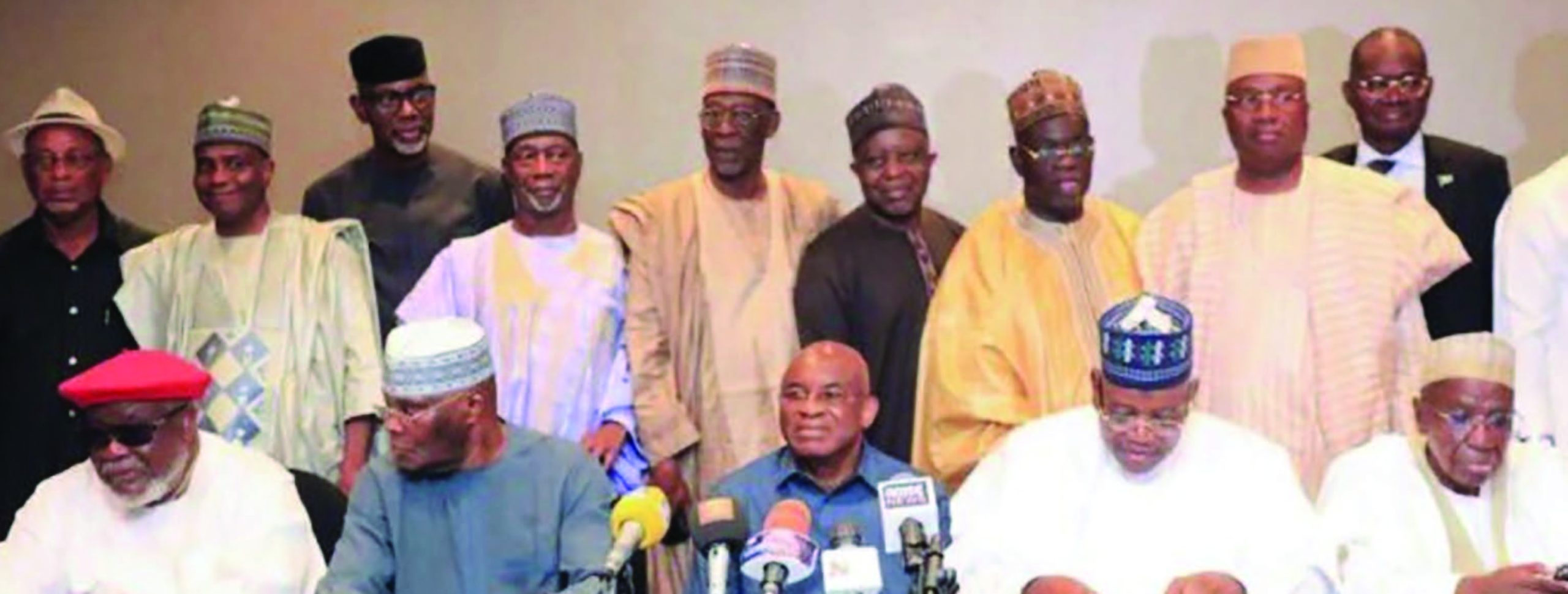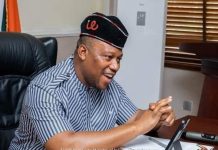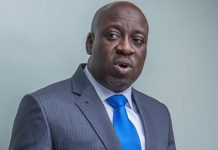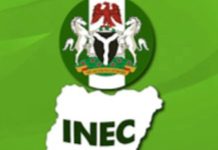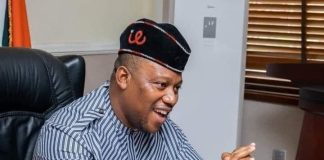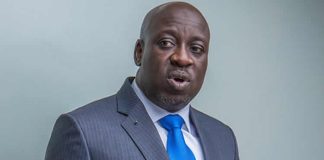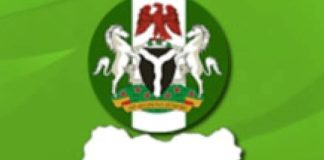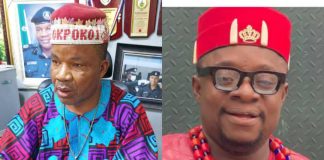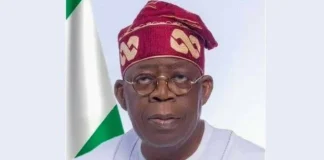🌿 Ruzu Non-Alcoholic Herbal Bitters
Ruzu Non-Alcoholic Herbal Bitters is a natural health supplement specially formulated to:
- ✅ Promote general wellness
- ✅ Detoxify the body
- ✅ Support the treatment of various ailments
Made from a powerful blend of 100% organic and medicinal herbs, Ruzu is completely alcohol-free, making it ideal for:
- 👪 All age groups
- 🌱 Health-conscious individuals
- 🌿 Anyone seeking non-alcoholic herbal remedies
Whether you're looking to boost your vitality, cleanse your system, or support healing the natural way, Ruzu Bitters offers a trusted herbal solution.
Discussions concerning whether Nigerians can trust the new alliance have been triggered by the establishment of the ADC coalition; others have questioned whether it is just “same faces, new platform.” Similar coalitions have been effective in the past, such as the APC’s merger of the CPC, ACN, and ANPP; nevertheless, some coalitions have failed because of underlying conflicts and mistrust. Can the ADC coalition demonstrate its uniqueness, or will it face the same difficulties that have beset earlier coalitions?
A recurrent topic in Nigerian politics has been the establishment of coalitions, where powerful leaders and members of different political parties band together to accomplish shared objectives. Atiku Abubakar, Rabiu Kwankwaso, Bukola Saraki, Rotimi Amaechi, and other prominent politicians formed a group of the PDP that merged with Tinubu’s ACN, former President Buhari’s CPC, ANPP, and other political parties to establish the All Progressives Congress (APC) in 2013. When Goodluck Jonathan fell to former President Muhammadu Buhari in March 2015, the PDP’s 16-year dominance came to an end thanks in large part to this coalition
Buhari’s Congress for Progressive Change (CPC), which was founded in 2006 by Muhammadu Buhari and his political allies from The Buhari Organization (TBO); Asiwaju Bola Tinubu’s Action Congress of Nigeria (ACN), which is renowned for its robust regional presence and mobilization efforts; and Ogbonnaya Onu’s All Nigeria Peoples Party (ANPP) were the three main camps that came together to form the All Progressives Congress (APC). Each of these groups brought their distinct histories, strengths, and contributions to the newly established party.
Read Also: Syndicated Loan of $747 Million Approved for Lagos–Calabar Coastal Road
Among the many politicians that the APC called together were Mallam Nasir el-Rufai, Abubakar Malami SAN, Chibuike Rotimi Amaechi, and Rauf Aregbesola. Under the Buhari administration, these people rose to prominence and influenced the policies and course of the nation. Some of these people, nevertheless, have since defected from the APC and joined other political organizations, such as the African Democratic Congress (ADC).
Atiku Abubakar, the former vice president and PDP presidential contender in the most recent elections, has recently formed a new coalition. APC founding chairman John Oyegun, former Senate President David Mark, former Rivers State governor and former Buhari administration minister Rotimi Amaechi, and former Labour Party presidential candidate Peter Obi are among the other prominent politicians in this coalition. Beyond seizing power, Nigerians have been questioning the coalition’s intentions.
Whether the current ADC coalition differs from the 2014 APC coalition is the main topic on everyone’s mind. Can we trust it? As long as the same faces are involved, many believe it is just another illusion rather than a sincere attempt at administration. This coalition’s potential concentration on seizing power rather than resolving the country’s issues is a cause for concern.
The circumstances behind the formation of the ADC alliance today and the APC coalition in 2014 are among the main distinctions between them. The APC coalition was established in reaction to the perceived shortcomings of the PDP government in order to weaken the party’s hold on power. In contrast, the ADC alliance is being established in a different environment, with the APC now holding power and dealing with its own problems.
The coalitions’ makeup is another area of distinction. Although the APC alliance brought together a wide range of politicians, the ADC coalition seems to be mostly made up of those who had previously been members of the APC or other parties. Whether the coalition is truly dedicated to change or just bringing together old acquaintances has come into doubt as a result.
Although it was successful in overthrowing PDP hegemony, the APC has had many difficulties since taking office. Some of the party’s important leaders have left, and internal strife has plagued the organization. The ADC alliance’s ability to accomplish its goals and offer a viable substitute for the APC is still up in the air.
Nigerians must look beyond the individuals in the ADC alliance and consider the coalition’s programs and dedication to governance when assessing its credibility. Will it put the needs of Nigerians first, or will it be motivated by self-interest? We’ll have to wait and see.
The formation of the ADC coalition has spurred a national dialogue over the need for new governance and leadership. Nigerians want to know if this alliance can fulfill its pledges and give the nation a brighter future.
Eventually, the ADC coalition’s capacity to relate to Nigerians and show that it is genuinely committed to resolving the country’s issues will determine how successful it is. If it succeeds in doing so, it might gain the confidence of Nigerians and offer a strong substitute for the APC. Nigerians might still suffer from bad governance if it doesn’t work out, though, and it might be dismissed as simply another illusion.
In 2018, the Christian Democratic Union (CDU) and Social Democratic Party (SPD) established a grand coalition in Germany with the goal of tackling urgent national concerns like social welfare, economic growth, and climate change. By uniting two powerful parties with disparate beliefs, this coalition ensured stability and advancement for the nation. They improved healthcare services and increased the generation of renewable energy by implementing policies that benefited the general populace through collaborative governance.
Development initiatives and economic reforms in India have been mostly propelled by the National Democratic Alliance (NDA) government, which is headed by the Bharatiya Janata Party (BJP). The NDA has created policies that support social welfare, infrastructure development, and economic progress while preserving a stable government by uniting different regional parties. Some of the most important issues facing the nation, such poverty and inequality, have been addressed in part by the coalition’s emphasis on inclusive growth and community involvement.
Nigeria’s ADC alliance should learn from these models by emphasizing democracy and community involvement. The coalition must go beyond empty rhetoric and show a genuine commitment to giving the people back control of the government if it hopes to win back the confidence of the general public. Implementing laws that support accountability, transparency, and inclusivity as well as making sure that decision-making procedures are participatory and decentralized would help achieve this.
After the APC’s alleged shortcomings, Nigerians would be wary of putting their faith in another coalition, like the ADC, as they have witnessed the same individuals and interests control both parties. This has made people doubt these politicians’ capacity to bring about significant change. Because of the APC’s failure to deliver on its pledges and deal with urgent problems like corruption, insecurity, and economic stagnation, Nigerians are now disillusioned and cautious of joining another coalition that may make promises but fall short. In order to be trusted, the ADC alliance would have to show that it has made a significant shift from the past, that it is genuinely committed to accountability, transparency, and the welfare of the Nigerian people, and that it is prepared to put the needs of the general populace ahead of the interests of the ruling class.
Their fundamental reasons and objectives differ: the ADC coalition seems to be a gathering of well-known figures from different parties, including former APC members, who may be more interested in seizing power due to a combination of ideological, personal, and political interests. In contrast, the APC was established as a merger of opposition parties to challenge the PDP’s hold on power, motivated by a desire for change and a necessary alternative. Their different goals may influence how they approach government and policymaking.
The APC was formed by a formal merger of multiple parties, including ACN, CPC, and ANPP, and has a clear set of objectives and organized leadership. This is another significant distinction between their formations. However, the ADC coalition appears to be a loose coalition of people from several parties who are bound together by the desire to overthrow the incumbent government, as well as possibly by divergent objectives, interests, and philosophies. Their ability to make decisions, stay cohesive, and fulfill commitments may all be impacted by this disparity.
The recently adopted ADC is still fighting an uncured political illness, while other parties like the PDP, NNPP, Labour Party, and SDP are negotiating internal dynamics. Further complicating the party’s internal issues, a recent court lawsuit has called for some factions within the party to remove the temporary executives.
The APC-led government has been accused by opposition parties of infiltrating their ranks, but the president has insisted that he is powerless to address the problems facing opposition parties since he is a democrat. Affirming his dedication to democratic ideals and letting each party handle its internal problems on its own, he has also denied accusations that he is converting Nigeria into a one-party state.
Many Nigerians are wondering if they can trust the ADC coalition because they are worried that it would be “same faces, different platforms.” Some fear that the ADC’s recent addition of well-known leaders from other parties raises doubts about whether this is a sincere attempt to effect change or just old wine in new bottles. This impression might have an effect on the party’s legitimacy and capacity to win over real supporters from Nigerians looking for significant alternatives.
For the ADC to be successful, unity and group goals must take precedence above individual interests. By putting aside personal goals and cooperating to achieve a shared objective, the coalition may leverage its many experiences and abilities to create a powerful, unified movement that can oppose the ruling party and bring about constructive change. If individual interests take precedence, the coalition runs the risk of disintegrating and failing, which would make it more difficult for it to keep its pledges to the Nigerian people.
People won’t believe in another alliance of interests unless they see concrete proof that power is being returned to them. The ADC must establish a new kind of politics that puts the needs and goals of the populace ahead of the interests of the ruling class. In addition to having a difficult task ahead of it, the coalition has a chance to influence Nigeria’s destiny and provide the nation a new course. It’s unclear if it will succeed or fail, but one thing is for sure: Nigerians are keeping a careful eye on it.

